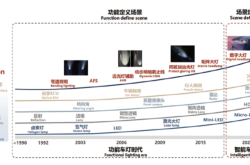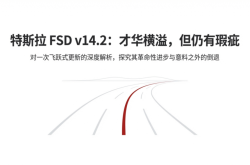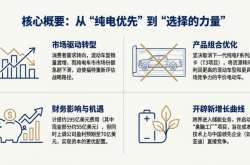Baidu's Q2 Core Net Profit Soars 35%, Surpassing Expectations: New AI Business Revenue Hits 10 Billion Yuan, AI Innovation Momentum Continues
![]() 08/21 2025
08/21 2025
![]() 427
427
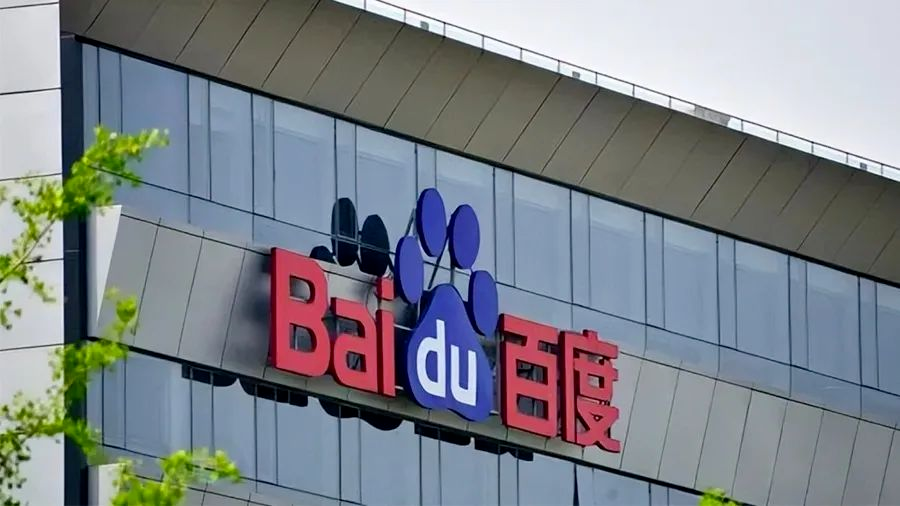
Baidu's full-stack AI strategy has empowered its growth in the B2B market and fostered innovation in the B2C market with confidence.
IPO Early Bird reported that Baidu released its Q2 2025 financial results on August 20.
The report revealed that Baidu's total revenue for Q2 amounted to 32.7 billion yuan, with core revenue reaching 26.3 billion yuan. Notably, Baidu Core's net profit surged 35% year-over-year to 7.4 billion yuan, surpassing expectations.
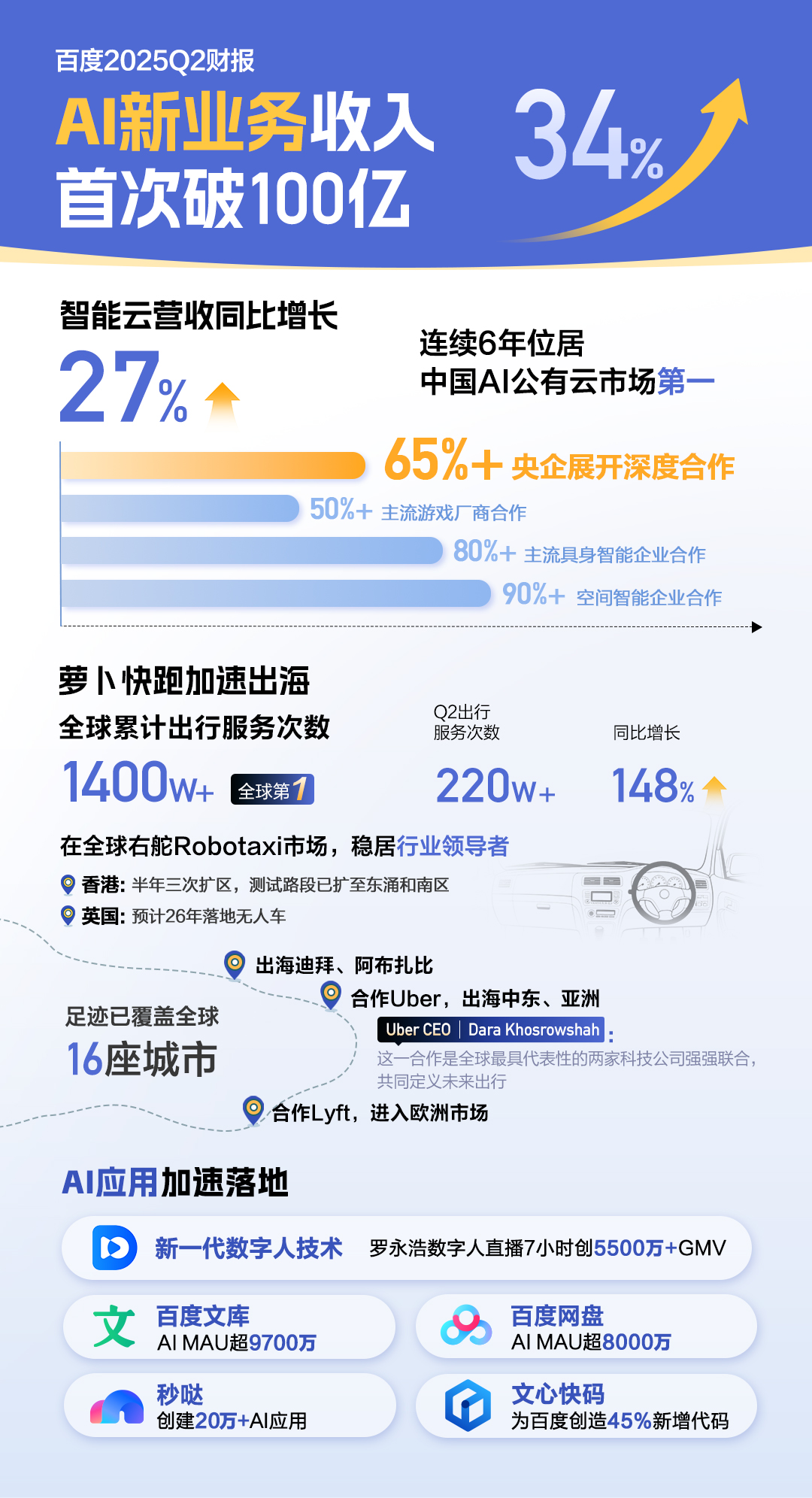
Notably, AI-driven innovation significantly fueled Baidu's new AI business in Q2, with revenue exceeding 10 billion yuan for the first time, marking a 34% year-over-year increase. Within this segment, Intelligent Cloud revenue grew 27% year-over-year, while Robotaxi Go has cumulatively provided over 14 million global ride services, ranking first globally.
The robust growth of Baidu's new AI business underscores the validation of its long-term AI strategy in terms of commercial value.
Full-Stack Capabilities Fuel Healthy Intelligent Cloud Growth
During the earnings call, it was highlighted that Intelligent Cloud revenue grew 27% year-over-year, with Non-GAAP operating profit also achieving year-over-year growth.
Baidu's founder, Robin Li, emphasized during the call that full-stack AI capabilities are the driving force behind the healthy growth of the Intelligent Cloud business. "Our unique end-to-end four-layer AI architecture has become our core competitive advantage." Baidu has achieved full-stack self-research across computing power, frameworks, models, and applications, positioning it as one of the few global AI companies with a full-stack layout, laying a solid foundation for the industrial implementation of various business lines.
With the core concept of "super usefulness," Baidu has leveraged its four-layer full-stack self-research architecture to build an AI application matrix encompassing scenarios such as transportation, live streaming, development, and office work.
Especially for B2B customers, Baidu's full-chain technical capabilities address their systematic needs, ensuring security, controllability, cost reduction, and efficiency enhancement. This holistic approach caters to the complex needs of B2B customers.
This explains why Baidu Intelligent Cloud has ranked first for six consecutive years in IDC's recently released "China AI Public Cloud Service Market Share, 2024" report. In the latest IDC report issued on August 20, Baidu Intelligent Cloud again led the large model platform market. Additionally, with 48 winning bids totaling 510 million yuan in the first half of this year, Baidu Intelligent Cloud firmly maintained its "double first" position in large model projects, continuing to lead in key industries such as finance, energy, government affairs, and manufacturing.
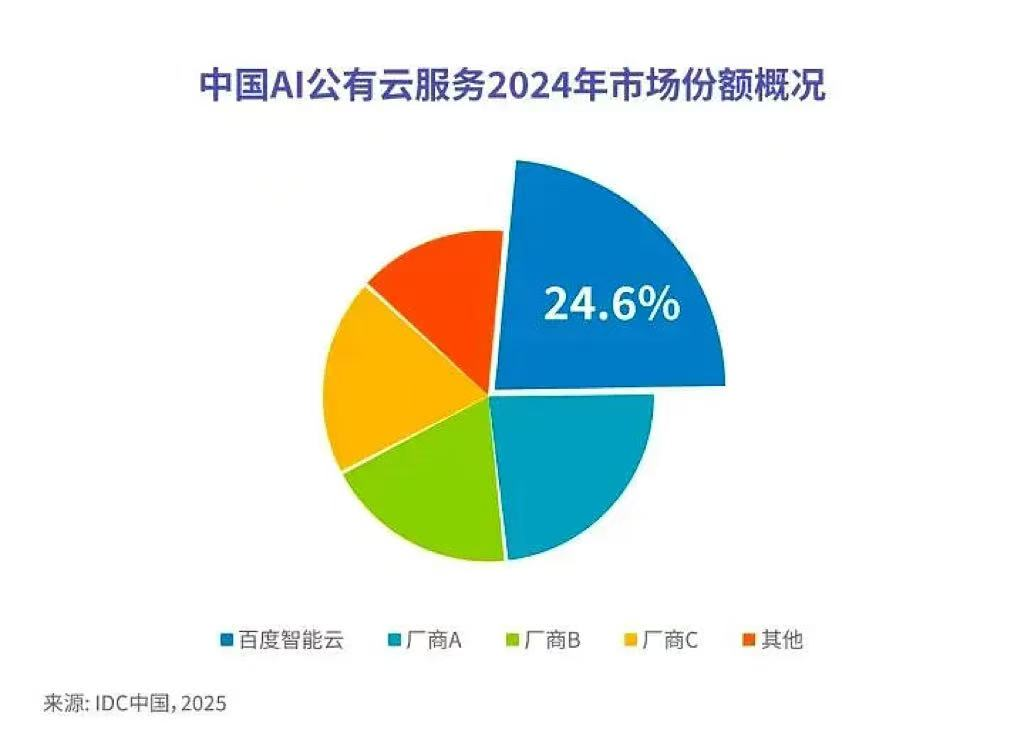
Both Baidu's Q2 performance and its repeated top rankings in industry reports demonstrate the industry and market's recognition of Baidu's full-stack AI capabilities.
Moreover, this full-stack layout fosters a positive cycle in both technical and commercial dimensions. The continuous iteration and optimization of full-stack capabilities unlock further profit potential through technology, creating a "flywheel effect."
Accelerated Robotaxi Go Deployment Reflects Long-Term AI Investment Payoff
Besides the steady growth of the Intelligent Cloud business, the accelerated deployment of Robotaxi Go is another testament to Baidu's gradual harvest from its long-term AI investment.
In Q2, Robotaxi Go provided over 2.2 million ride services globally, a 148% year-over-year increase. As of August, Robotaxi Go had offered over 14 million global ride services across 16 cities worldwide.
Since the beginning of 2025, Robotaxi Go has accelerated its globalization, expanding to Dubai, Abu Dhabi, and other locations, and forming partnerships with Uber and Lyft, two global ride-hailing platforms. In July, Robotaxi Go announced a strategic partnership with Uber, planning to connect thousands of driverless vehicles to Uber's global ride-hailing network, with a priority launch in Asia and the Middle East. In August, Robotaxi Go announced that it would provide driverless ride services in Europe through the Lyft platform. The two parties aim to deploy Robotaxi Go's sixth-generation driverless vehicles in Germany and the UK in 2026, gradually expanding to thousands of vehicles in the European market, realizing large-scale deployment of driverless technology.
Citibank analysts view Baidu's strategic cooperation with Uber and Lyft as a positive step for Apollo Go to further explore new markets with commercialization potential, showcasing Baidu's core capabilities in the autonomous driving value chain.
While the global Robotaxi industry is rapidly evolving, enterprises that have made earlier layouts and investments often lead in occupying global strategic high grounds when the industry explodes. According to the recently released "2025 AI Innovation and Patent White Paper," Baidu ranks first in China in terms of generative AI and agent patents, second globally and first in China for large model patent applications, first globally for deep learning patent applications, and first globally for high-level autonomous driving patent families.
Baidu Charts a Sustainable AI Development Path
Intelligent Cloud and Robotaxi Go are just the beginning for Baidu, which is actively exploring various models for AI application and deployment.
While the outside world pursues "super apps," Baidu advocates helping more people and enterprises create millions of "super useful" applications. It aims for "AI to be genuinely utilized in businesses," a less glamorous but more pragmatic goal.
In Q2, Baidu accelerated its search transformation, with AI-generated, structured, and multimodal answers gradually replacing static hyperlinks. In July, the proportion of AI-generated content on the mobile search results page surged from 35% in April to 64%. Over 60% of the top search results pages on the Baidu APP now display rich media content.
To some extent, Baidu's AI-driven search path is not merely a technological upgrade. Its greater value lies in enhanced user stickiness due to technological empowerment and the potential for multi-dimensional growth through deep AI penetration.
Furthermore, Baidu recently unveiled a new generation of digital human technology based on the ERNIE Bot large model, reaching industry-leading standards. In recent quarters, the utilization rate of digital human technology has gradually increased. In Q2, revenue generated by digital humans jumped 55% quarter-over-quarter, amounting to approximately 500 million yuan, based on information disclosed during the earnings call. Currently, Baidu's new generation of digital human technology has entered the invitation testing phase, applied to influencers and merchants in over ten industries such as education and health, and is expected to be open to the entire industry in October.
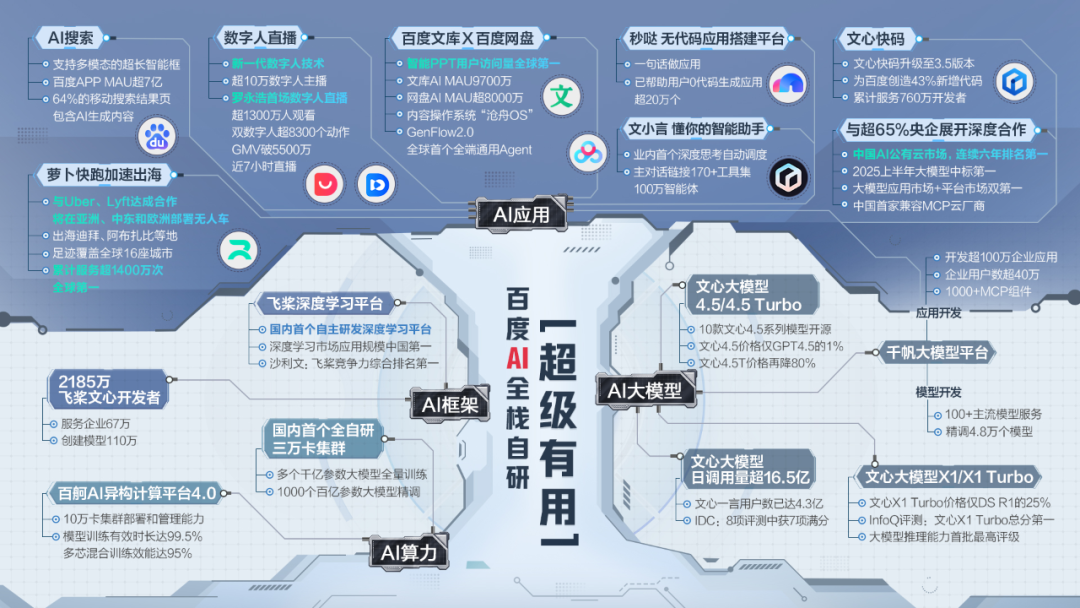
Overall, with a "full-stack mindset," Baidu is paving the way for the "New AI Era," committed to building a thriving AI ecosystem. Over the long term, as various industries explore AI deployment paths, Baidu has demonstrated a sustainable development trajectory of "driving commercial deployment through technological leadership" through consecutive financial reports. At the technical level, Baidu has amassed full-stack AI capabilities by pioneering layouts and being pragmatic. At the commercial level, Baidu excels in both B2B and B2C markets, fostering a symbiotic relationship between technology and business, creating a flywheel effect, and accelerating enterprise value fission.


